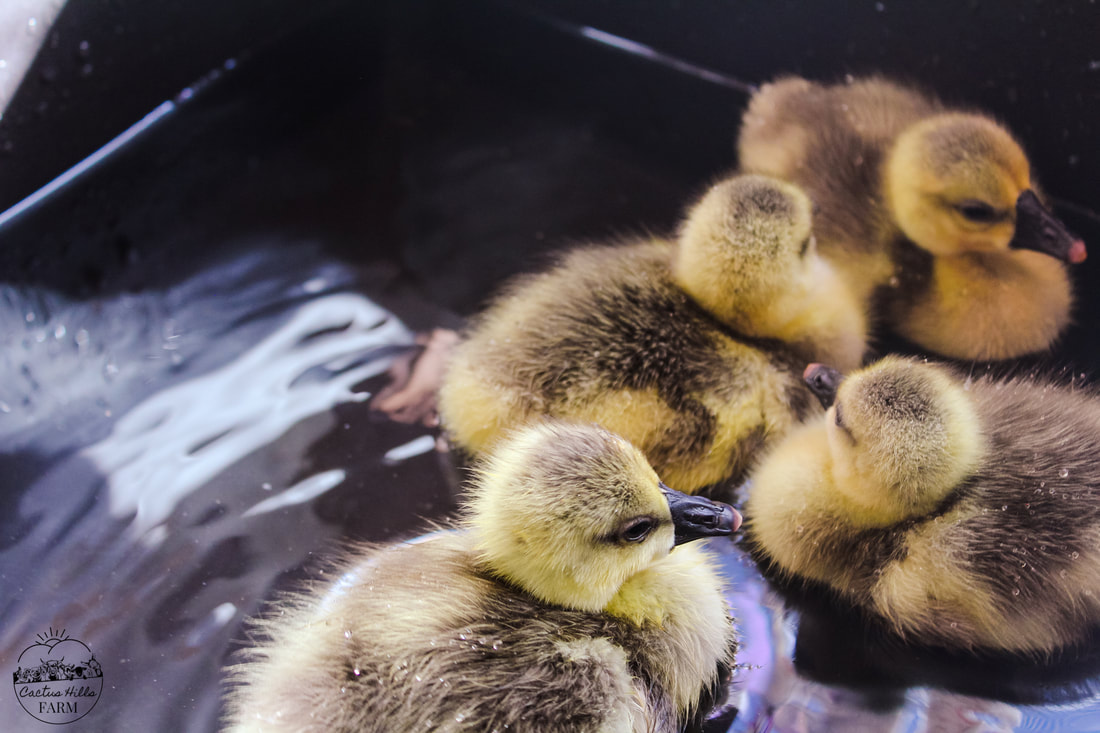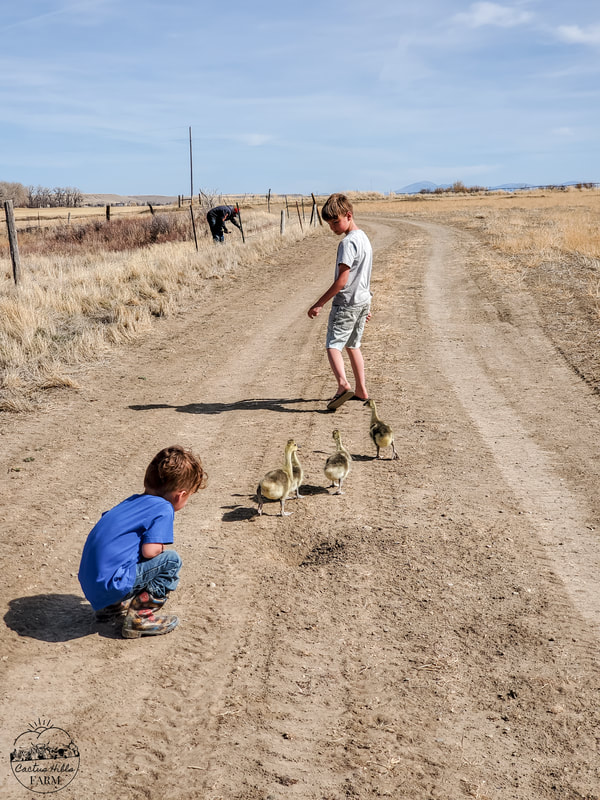|
We didn't do the best research when we got our first goslings, and we paid for it by losing the majority of them. It was a hard lesson. And we're here to help you avoid learning it the hard way! (Note: if you're like me, you'll skim an article to see if it has the info you want before committing to read it. There's a bullet point list at the bottom with a summary of everything in this post for that purpose. ) There are some things about raising goslings that are similar to raising chicks, mainly:
However, we don't recommend raising goslings and chicks together for the first few weeks because they shouldn't be eating the same food. Especially if you use medicated chick feed. The medication in the chick feed can make your goslings sick. Alos, ducks and geese have a need for more niacin and protein than chickens do, and a waterfowl starter will usually provide that extra boost of both. (Note: if you need a quick boost of niacin for your goslings because you didn't start with the right feed, brewers yeast can do the trick.) We use Eden Feeds for all our poultry, but they don't have a starter feed for waterfowl. Most farm stores carry waterfowl starter feed or an all-fowl starter feed. Either are good options. If you're looking for a natural or organic feed, we recommend Kalmbach feeds. Geese are grazers and will love you forever if you can offer them plenty of fresh green grass to eat at even a few days old. Make sure it's warm outside and stay with them at all times when they're tiny. A hawk, dog, or even a cat love a good goose lunch. By 6 or 7 weeks, they can live almost solely on grass. As they get older and no longer need supervision outside, an orchard is a wonderful place for them to live, with its rich, green grass. They also provide invaluable pest control, so it's a win/win situation! Give them plenty of opportunities to swim, but don't let them swim alone! Without their mother to help them, they can't make their feathers waterproof and will drown if left in the water too long. Once your geese are about 10 weeks old, they will do just fine with your chickens. If you will be using them as guard geese, you'll want to transition them in with your chickens sooner than later so they can bond with them and provide that protection you're planning on. Geese are not meant to be alone and may even die of loneliness. They need at least one companion of the same species. If you're hoping for guard geese, three should be your limit. Any more than that and they form their own flock and will only look out for themselves. We have found 2 to be the perfect fit for us. A quick breakdown of all the info you need to raise goslings:
Stefani
0 Comments
Leave a Reply. |
AuthorHey, I'm Stef! I'm the person behind the photos and the words, but the farm work you see is a family effort. Archives
March 2024
Categories |
Proudly powered by Weebly



 RSS Feed
RSS Feed